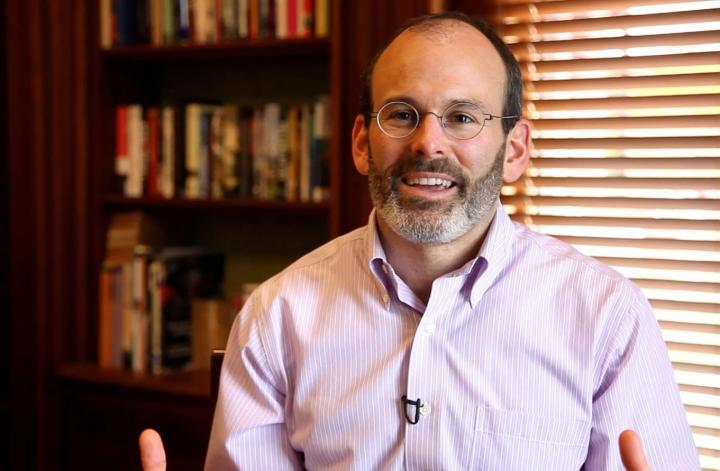
Credit: Brown University
PROVIDENCE, R.I. [Brown University] — As novel coronavirus cases continue to increase across the nation, health professionals on the front lines face frightening realities, rising anxiety and the very real potential for burnout.
“Health care providers are under tremendous pressure right now,” said Dr. Jud Brewer, director of research and innovation at the Mindfulness Center at Brown University. “Physician burnout was already reaching ‘epidemic’ proportions before this pandemic hit.”
In fact, a 2014 study found that nearly half of all physicians experience significant symptoms of burnout, and further research suggests that the risk is particularly high for those who perceive that they aren’t in control of what unfolds around them. Theoretically, this perceived lack of control leads to anxiety, which can then lead to burnout.
Brewer and his colleagues worked to address these conditions with a smartphone-app mindfulness training program called Unwinding Anxiety. They examined the app’s effects in a pilot study of 34 physicians, which appeared in JMIR mHealth and uHealth on Wednesday, April 1. The study was the first to test the effectiveness of an app-based mindfulness program as an intervention for anxiety in physicians.
“Clinicians need effective tools to help them reduce anxiety and burnout,” Brewer said. “Digital therapeutics are an ideal solution because people can use them in small doses, at home, on their own schedule. The app-based mindfulness training that we studied does just that: It provides short daily trainings — about 10 minutes per day — that people can access from their smartphone, and it gives them tools they can use throughout the day.”
The app aimed to reduce anxiety by helping users recognize maladaptive thought patterns and become less reactive to anxious thoughts. And it worked. Three months after using the app for 30 days, participants exhibited a 57% decrease in anxiety scores.
Brewer and his colleagues also found clear links between anxiety and certain aspects of burnout — cynicism and emotional exhaustion — which suggests that the app could effectively treat burnout as well. Sure enough, at the three-month follow-up, participants exhibited a 50% decrease in cynicism and a 20% decrease in emotional exhaustion.
“These results provide clear implications that this mindfulness-based digital therapeutic may be a useful tool for busy clinicians to both reduce anxiety and help build resilience against getting burnt out,” Brewer said.
He and his colleagues are already at work on the next steps: a randomized controlled trial of app-based mindfulness training for broader populations.
“The pharmaceutical industry hasn’t released any new anti-anxiety medications in decades and to my knowledge has no new drugs in the pipeline,” he said. “We need effective treatments, especially those that can be widely disseminated at low cost. Digital therapeutics, like app-based treatments, are the next wave of treatment.”
###
Brewer owns stock in the company that developed and sells the mindfulness-based app, a point fully disclosed in the study. Another Brown University author on the study was Alexandra Roy, and additional contributors were Susan Druker from the University of Massachusetts and Dr. Elizabeth A. Hoge from Georgetown University.
The study was supported by a Carl Akins Risk Management grant from the University of Massachusetts Memorial Medical Group.
This news story was authored by contributing science writer Kerry Benson.
Media Contact
Kevin Stacey
[email protected]
Original Source
https:/
Related Journal Article
http://dx.




